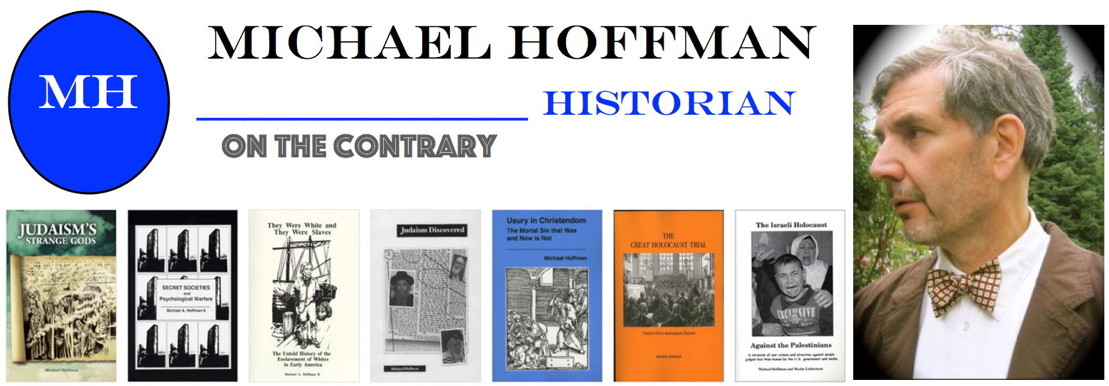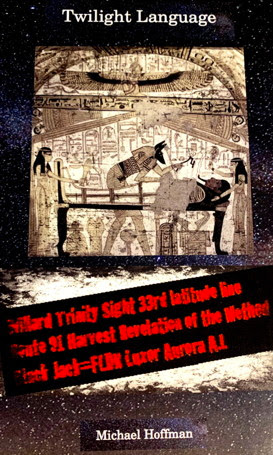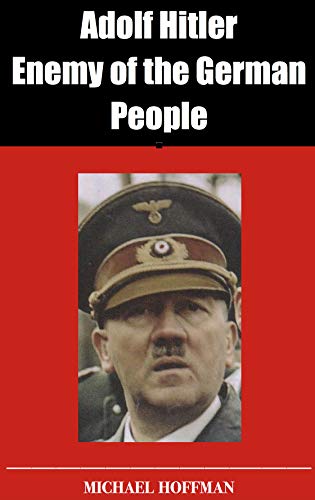A response to Dr. Tom Sunic's "Louis Ferdinand Céline — An Anarcho-Nationalist"
By Michael Hoffman
www.RevisionistHistory.org
"I wrote nothing against the Jews… all I said was that 'the Jews are pushing us into war,' that's all. They had a fight with Hitler and it was none of our business, we shouldn't have mixed into it. The Jews have had a war of lamentation for two thousand years and now Hitler has given them more lamentations..."
— "A Talk with Louis-Ferdinand Céline," Evergreen Review (vol. 19; 1961).
Dr. Sunic: "He was an anticommunist..".
Fact: Céline wrote, "The only thing Jews really fear is Communism without Jews."
Dr. Sunic: "He was...an anti-Christian."
Fact: In middle and old age, yes. At the start of his career no. For example in Mea Culpa he praises the Early Church Fathers.
Dr. Sunic: "...the replicas of his nihilist character.."
Fact: Nihilism is defined as the rejection of all moral principles and the belief that life is meaningless. Céline had very high moral principles, that is why he never compromised with or surrendered to Judaism and Zionism, even in his last years. Céline was passionate about the white race, earnestly desiring its survival. He was a medical doctor to the poorest of the poor. He fought for the honor of Ignaz Philipp Semmelweis, the rebel physician who was expelled from medicine for insisting on proper hygiene for pregnant women. Céline cared deeply and profoundly for his world, his people and for the truth. He was not a "nihilist."
Dr. Sunic: "Upon his return to France in 1951, the remaining years of Céline's life were marred by legal harassment, literary ostracism, and poverty. Along with hundreds of thousands Frenchmen he was subjected to public rebuke that still continues to shape the intellectual scene in France."
Fact: France in the 1950s and 60s was a paradise compared with France in the 21st century. Céline in that time, while still a kind of moral leper, under some threat of physical reprisal from Communists (hence the fence and the guard dogs in Meudon), was interviewed on radio and national television. The interviewers are respectful, even awed. Allen Ginsberg, William S. Burroughs and other famous avant-garde writers beat a path to his door. As for poverty in his last years, if he was poor it was not penury, but rather genteel poverty in a dilapidated mansion. I doubt, however, that he was indeed poor. He was extremely frugal. He seems to have had a steady income from his books. He was still published by Gallimard (a major French publishing house). Arno Breker, the sculptor, testified that Céline went into a Bohemian phase late in his life and dressed shabbily, but not due to poverty.
Céline had no use for the organized "nationalist" movement or the collaborators who fled France with him, as his trilogy North, Castle to Castle and Rigadoon make clear. In Paris he had treated wounded members of the French Resistance privately. Still he was on their list to be assassinated. He thought the Germans had gone soft on French café society, failing to institute a revolution. He refused to broadcast for the Nazis.
He poked fun at the Aryan movement for its negativity - the emphasis on being against Judaic people - and he felt revulsion at the Aryan movement's pride and self worship (rabbinic characteristics!). Martin Luther, Friedrich Nietzsche and L-F Céline all share one trait in common: whether in the Germans or the French, they could not abide the infiltration of racial megalomania — rabbinic-type vanity — all of which pervade the white nationalist movement today. Céline was constantly knocking not only Judaic leaders and philosophers but the pride of the French. For example, he wrote that he and other French civilians fled Paris as the German army approached, but no matter how fast they ran they could not catch up with the French army, who were running even faster!
The white nationalists can't account for Céline's humorous assault on patriotism and national pride, so they attribute it to a modern ideology, "anarchism" or "nihilism." Céline was not at all a modern person however, and least of all an ideologue of any kind. Céline's derision for the French army matches William Langland's derision for the English Catholic hierarchy in the 14th century. L.F. Céline had a medieval mind. His revulsion was for modernity and everything connected with it.
Even my friend Humphrey Ireland ("Wilmot Robertson") fell into this misapprehension when he sub-titled this writer's article about Céline in Instauration magazine, "For Céline nothing was sacred." It is not true.
Céline was a satirist and if not an Aryan Communist (though an argument can be made that he was), then a leveler who despised plutocrats and class distinctions and privileges. His worldview was that of the crafty and shrewd Breton (i.e. Celtic) peasant. His greatest insight, at least for me, was his penetration and deconstruction of the Renaissance, which, everywhere else in our society, is portrayed as the apogee of western man. For Céline the Renaissance represented the coming of "scientism and the social robot." Céline and Frances Yates were the thinkers who first truly opened my eyes to this era, to the worm in the Renaissance apple and yet, nothing is more counter-intuitive for the white nationalist movement.
Céline was a medieval man in many respects: the ribald and scatological nature of his writing, the earthiness, the Piers-the-Ploughman disdain for the Church hierarchy and the clergy and human respect — but not for the centuries old culture that Christianity had cultivated, which is only hinted at in Mea Culpa.
One facet of Christian wisdom that can be found in his philosophy is the fact that Céline despised the deification of man. This is why he could never fit into the Aryan/white nationalist movement. Like the Bolsheviks, the Aryans had made man into everything. Though he railed against the race-blind doctrine of Christianity, and in the biting satire that is his trademark, he referred to St. Peter as "a chanting Al Capone," he is rooted in a thousand years of Catholic peasant culture. Death was always before him. He said that we "give birth astride a grave." This made him immensely indifferent to what the New Testament calls "human respect." Most of us aspire to being indifferent to what people think, but we don't often realize that certain saints throughout history have deliberately sought to be hated and misunderstood, partly out of contempt for humanity and partly to tame their own pride. This is the essence of Christian virtue. Céline believed that the Church since the Renaissance had domesticated man and made him fear the opinions of other men when it came to speaking racial or religious truths: "...the white man...let the church corrupt him…you're not allowed to say anything like that… the Pope is watching, be careful… say nothing! heaven forbid… No! It is a sin… you'll be crucified… keep it still… be quiet… be a nice dog… don't bark… don't bite… here is your pap… shut up!"
But Céline did speak up, in the prelude to World War II and even during that war, and he was hated fiercely for it. The government of France officially declared him a "national disgrace."
As someone who does not believe the stories of mass deaths by gassing in Auschwitz, I know what it means to be ostracized and stigmatized, as every revisionist who has gone public does, to some extent or other. Whereas we lament it and wish we could be liked by our fellow man, Céline reveled in it. These words of his, since we know that he lived them, are perhaps among the boldest expressions of a heroic human spirit that I have ever encountered:
"I do and will continue to do, everything in order to be and remain, if not the richest then at least the most unpopular man in France...The total contempt of all of humanity is extremely pleasant to me..."
This is what it means to be a Christian. True Christianity is always a counter-culture and will always attract hatred. Most of us can't take it, though. We're not saint material. We're not heroes. We fear being hated and we structure our lives so as not to have to deal with hatred from others. No real progress or enlightenment is achieved by people who fear being hated, however. For all his rough language and eroticism, Céline possessed an other-worldly asceticism. He did not have any use for the vanity of the modern world. He saw that much of what we care about is ephemera and much of what we avoid is of great value. These are Christian insights, but he grew sick of the corruption in the Church, as people today are sick of a Vatican brotherhood that secretly facilitates the molestation of children.
The ancient Catholic peasant wisdom emphasizes that we are all going to die; that we are all inauthentic — ham actors puffed up with ridiculous pride and the willed forgetfulness we impose on ourselves concerning our destiny — in the grave. Doctors, nurses and soldiers see that destiny every day. Céline had been a soldier (wounded in World War I), a medical student, and then a physician and a pacifist. He declared that the only honest humans, mankind stripped bare of pretense and conceit, were the sick (“when it comes to human beings, I’m only interested in the sick...the ones who can stand up are nothing but mounds of vice and spite”), and the imprisoned (like Ezra Pound, at the behest of the Allies he had been imprisoned after the war for his writing).
The ancient Catholic peasant wisdom emphasizes that we are all going to die; that we are all inauthentic — ham actors puffed up with ridiculous pride and the willed forgetfulness we impose on ourselves concerning our destiny — in the grave. Doctors, nurses and soldiers see that destiny every day. Céline had been a soldier (wounded in World War I), a medical student, and then a physician and a pacifist. He declared that the only honest humans, mankind stripped bare of pretense and conceit, were the sick (“when it comes to human beings, I’m only interested in the sick...the ones who can stand up are nothing but mounds of vice and spite”), and the imprisoned (like Ezra Pound, at the behest of the Allies he had been imprisoned after the war for his writing).
Céline did not want a white national "ism" or "movement." He wanted a community which he termed Aryan Communism and which had existed in the Middle Ages in Europe. The modern "white nationalist movement" is too degenerate and too doctrinal. It has lost sight of the biological imperative of the large family; of the fact that the most fundamental power politics consists of large families networking and bonding together in work and prayer. Parades, speeches and meetings without the former constitute a fragile illusion; an apparition conjured by intelligence agencies.
For Céline there was something higher than race worship; race worship being a form of rabbinic materialism. Yet, there is nothing higher than race among the paradoxically childless, sterile Aryan "movement" today, and because of that sterility Europe will be steamrolled by the fecundity of the Levant, the Indian sub-continent, Latin American and sub-Saharan Africa.
One cannot talk of Céline's writing without speaking of his music, as I found when I first heard Céline recited in French from memory by Robert Faurisson. Though I did not understand the words, I heard the melody. Does anyone discern the music of Céline behind the caricatures of him now in vogue: the avant-garde writer and the anarchic racist satirist?
It is a tune from medieval Celtic soil, from the age when peasants had a song for every activity and task; when European men and women were far more human, humble and communal; they had not fallen prey to the contemporary Aryan movement's rabbinic conceit that they are gods, a conceit which represents the Judaization of the Aryans, who are forever accusing Christians of being Judaized.
There would be no place for Céline in any political movement today and not because he was an alleged “nihilist." In a degenerate society drowned in all that is digital, mechanical, artificial and arrogant, the Célines among us can only be exhibits in a rarefied zoo.
It is a tune from medieval Celtic soil, from the age when peasants had a song for every activity and task; when European men and women were far more human, humble and communal; they had not fallen prey to the contemporary Aryan movement's rabbinic conceit that they are gods, a conceit which represents the Judaization of the Aryans, who are forever accusing Christians of being Judaized.
There would be no place for Céline in any political movement today and not because he was an alleged “nihilist." In a degenerate society drowned in all that is digital, mechanical, artificial and arrogant, the Célines among us can only be exhibits in a rarefied zoo.
Copyright ©2010 www.RevisionistHistory.org
All Rights Reserved
All Rights Reserved
***















